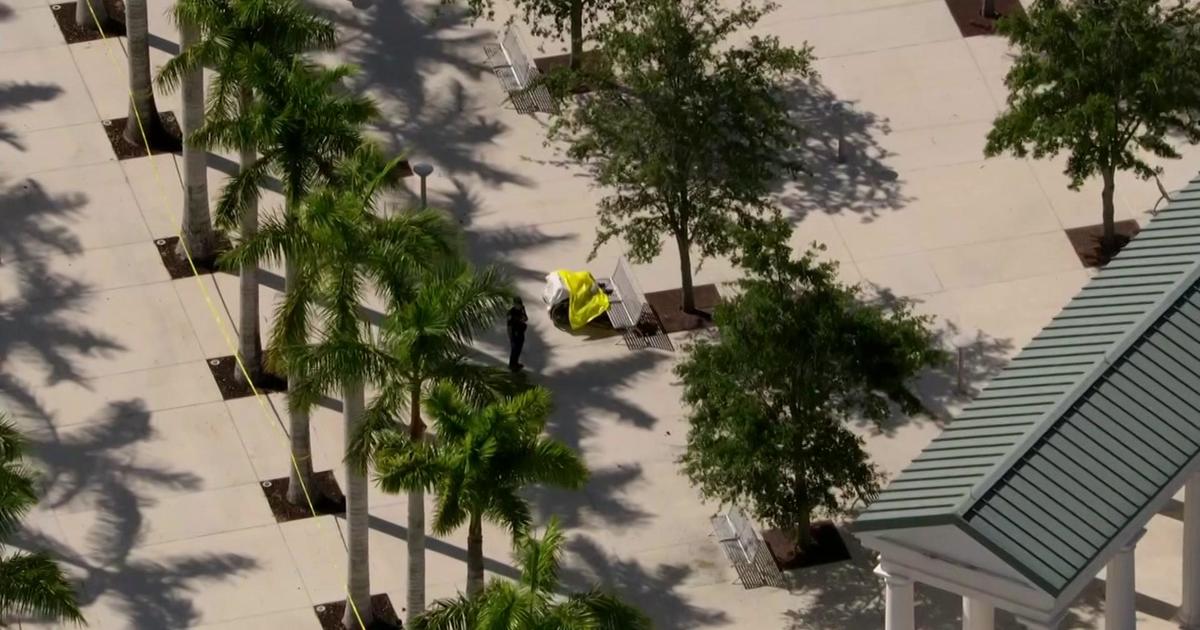High-tech companions aim to help fight loneliness epidemic among South Florida seniors
MIAMI - The state of Florida and Broward County are spending thousands of dollars every month on artificial intelligence robots for seniors to help fight the loneliness epidemic.
One senior owns a robotic cat named "fluffy."
"The best part is we don't have to spend any money on food and no vets," says Cathy.
This interactive robot rolls over, blinks and purrs whenever it wants.
Cathy saw a friend using one to overcome the loss of a pet and loneliness and figured it would be perfect for her husband.
"He had sciatic pain. Maybe that will help you with your pain in some way. Even though he's on medicine and therapy because real animals when you pet them it helps with pain management."
Higher tech was delivered to some Broward seniors.
"...Thanks for letting me out of that box."
The company that makes them aims artificial intelligence at the loneliness epidemic.
"During the week when everyone is working, there's times when I'm lonely."
"When I go deliver and install for seniors, they're like I just want somebody to say good morning," says Antonella.
"Many of them don't have family or friends nearby. Maybe their loved ones have passed on or some of their friends have passed on," said Charlotte Mather-Taylor, who serves as the CEO of the Area Agency on Aging of Broward County.
According to US Health and Human Services, half of all American adults are lonely.
It's threatening health, increasing risks of heart disease, dementia, stroke, anxiety and depression.
According to HHS, lack of connection can increase the risk of premature death at levels comparable to smoking 15 cigarettes a day.
Last May, the US Surgeon General dropped a first-ever advisory on loneliness and isolation.
"By strengthening our relationships, we can improve our heart and brain health, reduce our risk of diabetes and high blood pressure, boost our immune systems and lower our risk of depression," said Vivek Murthy, US Surgeon General.
In Broward County, Mather-Taylor is spending state and federal dollars on artificial intelligence for people over 60.
"There's so much I want to ask you..."
These robots named after the Norse goddess of old age cost 89 dollars a month, but the aging agency is giving them away for free.
Rosemary Mullarkey is one of the first 300 to have one.
"I'm a little excited and a little apprehensive..."
Intuitive Robotics CEO Dor Skular created her specifically for older adults to help manage their health, and wellness and connect to loved ones.
"There's an algorithm that tries to get a reward and it gets a reward when the user completes things that are part of healthy aging. For example, if they hydrate," said Skular.
Reviews are so strong that cities like Pembroke Pines and Lauderhill are pushing to get more robots for seniors in their communities.
"People reported back that she was bringing them joy. I mean, she's telling some jokes. She's responding to them. They wake up in the morning, she asks them how they are. She'll remind them to drink their glass of water. So, she's caring about them for them," said Mather-Taylor.
Two years later, seniors like Rose are getting free, AI robots that make and take video calls.
With all of the concerns about AI, should seniors and their families be worried?
"We would not be offering it unless we felt comfortable that they did have those safety guards in place," said Mather-Taylor.
"Is this device unhackable? There's no such thing as an unhackable device. It's always a war between defender and attacker," said Skular.
"Random people, fraudsters etcetera, can never call into the robot because they need to be added by the older adult as a contact for them to be able to open up the calling features."
What is the next step with the robots?
They only speak English. South Florida has plenty of seniors who do not. Developers are working on a Spanish robot.
In the future, developers also see it being able to order medicines for seniors. Much sooner though, developers expect to further integrate the robots with senior health care providers. They are working on ways of opening new avenues to communicate health info about seniors to loved ones, provided the senior signs off on it.
How long can this program last?
State, federal funds will last two years. After that, the agency has to find other grants to cover the $89 a month per person fee.
Currently, data from robots and users is being collected to quantify success. The company insists it will not sell any of the information it gathers.




